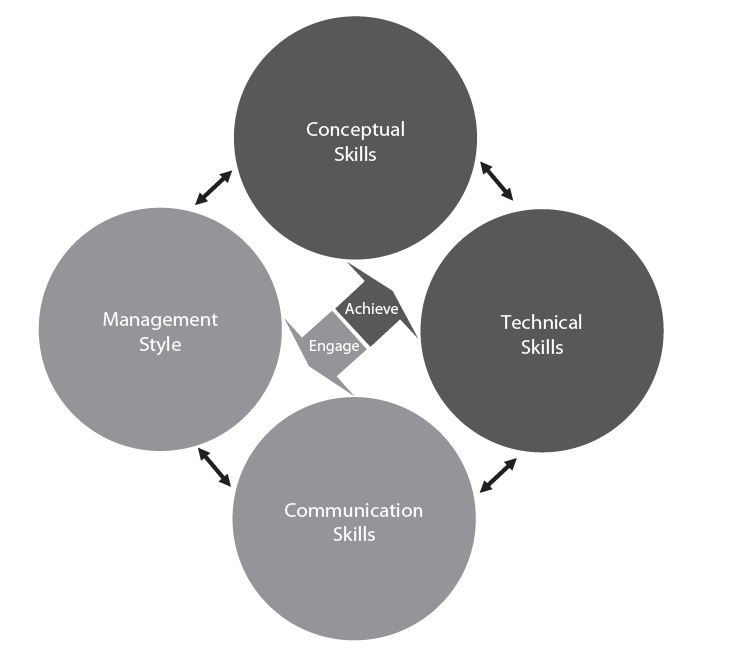Acting the manager…
“Last night’s opening preview of Broadway’s most expensive production ever was an epic flop, as the $65 million show’s high-tech gadgetry went completely awry amid a dull score and baffling script…”[1]
This is how the New York Post’s theatre critic described the show Spider-Man: Turn Off the Dark back in 2010. (The production got lots of publicity because it was backed by Bono and The Edge from U2). And this critic wasn’t alone either, for the show was initially beset with a host of problems and was generally slated across the board by all-comers. Fast forward to the end of its run in 2014 and Turn Off the Dark had become one of the top grossing Broadway shows ever, having been seen by over 2 million people (unbelievably, the show still lost money for its investors though due to outrageous production costs). But as a spectacle it became hugely popular so what do critics know, right?
By now you may well be wondering what this has to do with anything even remotely related to management?
Well, quite a lot really. After all, if you think about it, managing others is somewhat akin to being on a stage, isn’t it? For starters, you have an audience: employees, superiors, colleagues, customers and so on, and out there under the spotlight your talents, and more importantly, your failings are magnified; there is no hiding place. And, of course, there’s always plenty of critics around to snipe at your performance; everyone’s an expert when it comes to management. What’s more, any of your failures on the management stage can be as costly – relatively speaking – as a Broadway flop, in terms of the pain caused to you, or others, and indeed the harm done to the business. And, just like any actor, you are only ever as good as your latest performance; there’s always pressure to deliver.
So, drawing parallels between acting and managing works quite well actually and many of the factors that contribute to success on the stage can be applied too in the context of management. Here are a few examples, in no order of importance, of what I mean:
1. Own the Stage
You often hear it said that a good actor, or actress, must ‘own the stage’, or in other words, he or she must capture their audience from the outset and keep them captivated. As a manager, you too must own your stage in the sense that you need to win over those around you – your audience if you like – and this applies to subordinates, colleagues and superiors. And just like the actor who fails to grab the crowd, if you don’t bring your people along with you, then you too will face a fairly excruciating experience and no doubt some lousy reviews to boot.
2. Have Natural Talent
Clearly, not everyone has what it takes to make it in the acting world. The same applies to management. Just as there are traits and skills that make the top actor stand out, so too there are for the best managers. And, in a management context, can those traits and skills be learned? To an extent they can be, but there must be inherent natural talent too, particularly when it comes to the traits required, for they are not so easily learned. Of course, they can be developed over time – if they are in place to some extent – but you can’t, for example, ‘teach’ a manager to suddenly have empathy for others; yes you can increase an individual’s awareness of the need for it, but developing empathy would take quite some time at best. On the other hand, the skills of management can be more readily developed, or at least enhanced, if the motivation to do so is there. As a manager, you need to have strengths across four sets of skills:
It would be laughable to suggest that every manager can master all these skills to the same degree, but you do need to have some talents in all these areas and especially so in the current climate when the challenges you face are so diverse:
Conceptual: You must be able to see the big picture and ensure that the business, or your area, is consistently in tune with a changing operating environment. You need to be able to recognise and analyse complex issues, problem solve and make the right decisions.
Technical: You must get to grips with the range of technical skills such as planning or financial management relevant to your level and role in the organisation.
Communication: You need to communicate effectively so that you really connect with others.
Management Style: You must adjust how you deal with, and respond to, the rollercoaster ride that is life in any business today.
3. Embrace the Role
Some actors take ‘embracing the role’ to the extreme. Daniel Day-Lewis, in an interview once explained what it was like when a role came to an end for him:
“The last day of shooting is surreal. Your mind, your body, your spirit are not prepared to accept that this experience is coming to an end. You’ve devoted so much of your time to unleashing, in an unconscious way, some sort of spiritual turmoil, and even if it’s uncomfortable, no part of you wishes to leave that character behind. The sense of bereavement is such that it can take years before you can put it to rest. [2]
I’m not suggesting that you need to become as obsessed about what you do in order to succeed, but you do really need to ‘get into’ the management role to truly excel at it; you can’t just leave the manager behind as you exit the building every day – management is more than a job. Yes, you can and should leave the stresses or hassles after you as you head home, but not the management mindset. A manager is who you are, not something you do for a set number of hours in any given day and success in the role is as much about how you think as it is about how you act and behave; you simply cannot flick on a mental switch each morning and hope to morph into manager-mode.
4. Have a Script
It goes without saying that an actor without a script wouldn’t necessarily be a compelling attraction – ad-libbing can only go so far in terms of keeping the audience glued. As a manager, you too need a script, a plan, a way forward –with clear focus – if you are to successfully bring others along with you for the journey. That said, having a script doesn’t mean that you won’t have to improvise on occasion – improvisation is good, and necessary, once you have an overall framework or direction to keep you on track. And that direction can come from a number of sources: for the business as a whole, or your part of it, you need an overall vision and strategy as well as an annual business plan to guide you. On a personal level, you should have defi ned goals to focus your actions and all decisions you take should be related to those goals. Even with your team, there should be clear goals and plans agreed so that everyone knows what the collective aims are. It is through having direction that you can bring the business, and yourself, back on track when circumstances force you to deviate from what was planned.
5. Never Give Up
Very few actors succeed at the first attempt. In fact many never ‘succeed’ at all, but still spend a lifetime on the stage out of love for the craft . One of the most interesting aspects when you look at the career paths of many successful actors is the number of setbacks they had to overcome before the big break materialised. Management life too is full of hurdles and an essential trait needed is the ability to bounce back when things don’t go as hoped.
6. Hit Your Mark
An important feature of acting is the need to constantly ‘hit the mark’ – where marks are set up specifically to guide an actor on stage or on set. The first step towards success for any actor is therefore hitting their mark, and to do that they actually need to know where those marks are. For managers, replace ‘marks’ with ‘targets’. It is critically important for you to know what your targets are in the first place and of course you then need to actually deliver on them. Just as the actor failing to hit the mark will affect the show, missing your targets will be equally as damaging to overall performance.
While there are clearly some interesting parallels to be drawn between the world of acting and management, it’s important not to go too far with the analogy because there are some theatrical traits that just don’t translate very well into the world of management, such as too much ego or ‘neediness’. Yes, all of us have a bit of ego and there’s nothing wrong with that in moderation, but when a manager starts wanting to be the most popular person in the room, or seeks to hog the limelight, then it’s time to exit stage left.
References:
[1] Riedel, “First ‘Spider-Man’ Preview Filled with Problems”, New York Post, 29 November 2010.
[2] Hirschberg, “Daniel Day-Lewis: Th e Perfectionist”, Telegraph, 8 December 2007.


